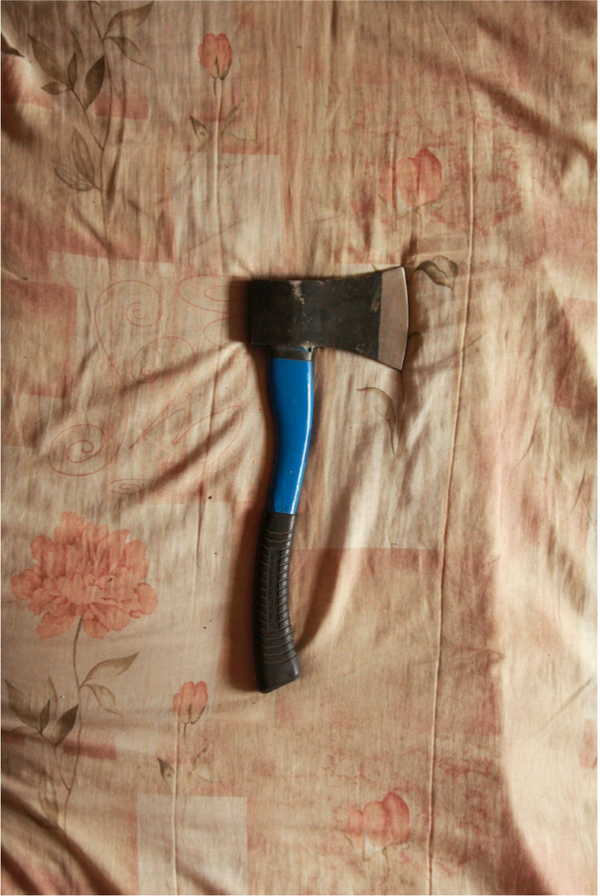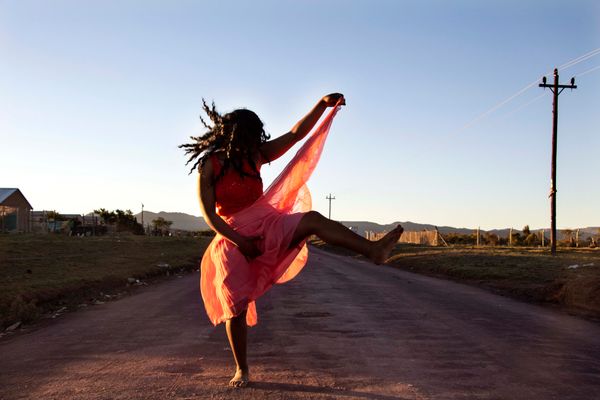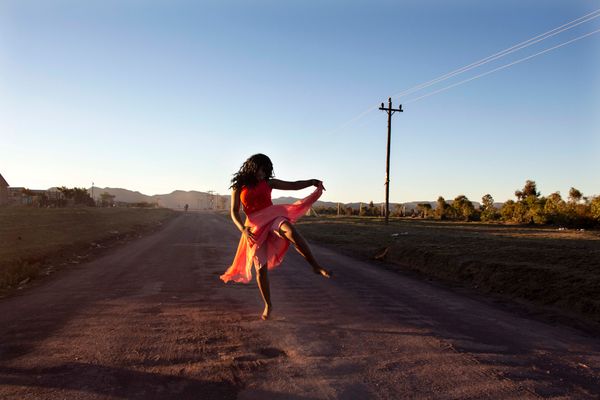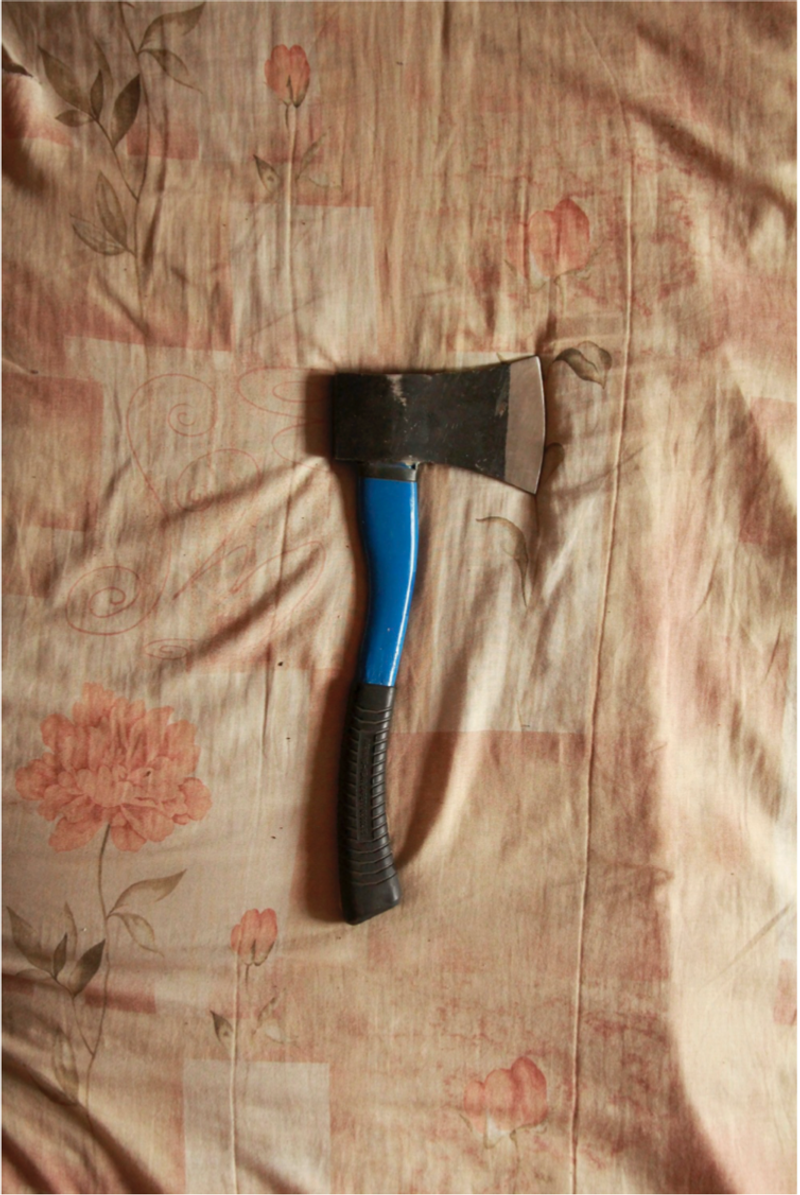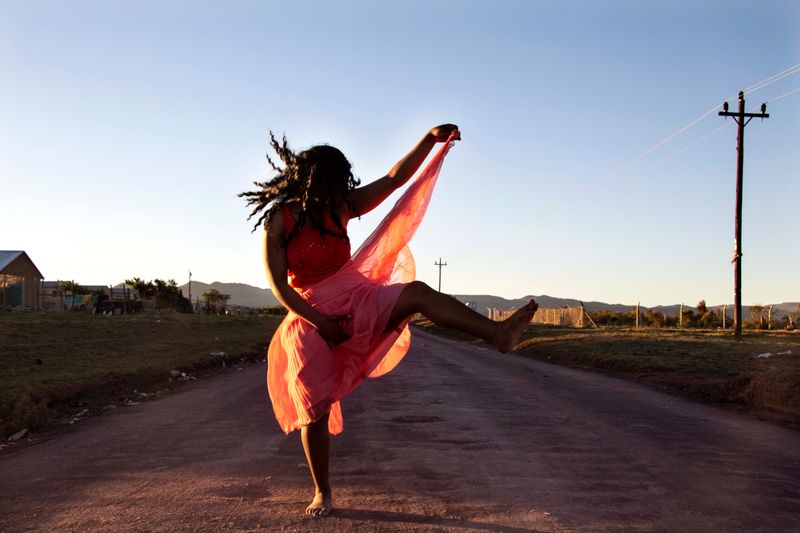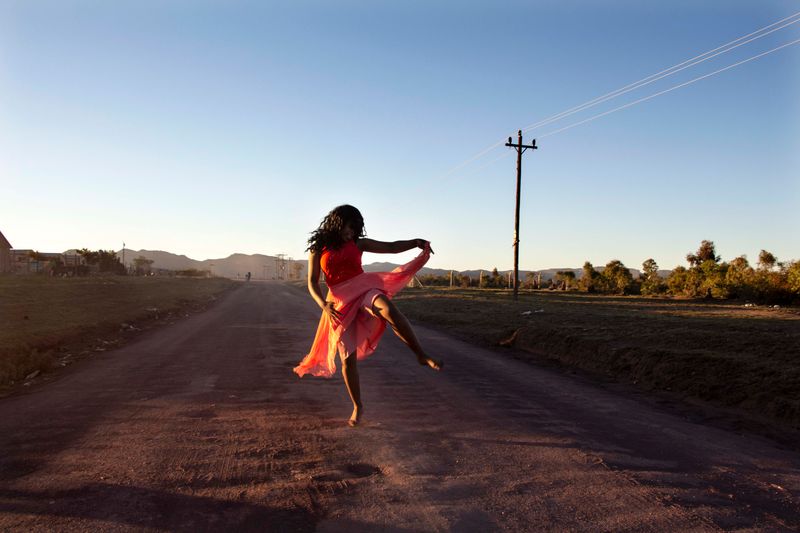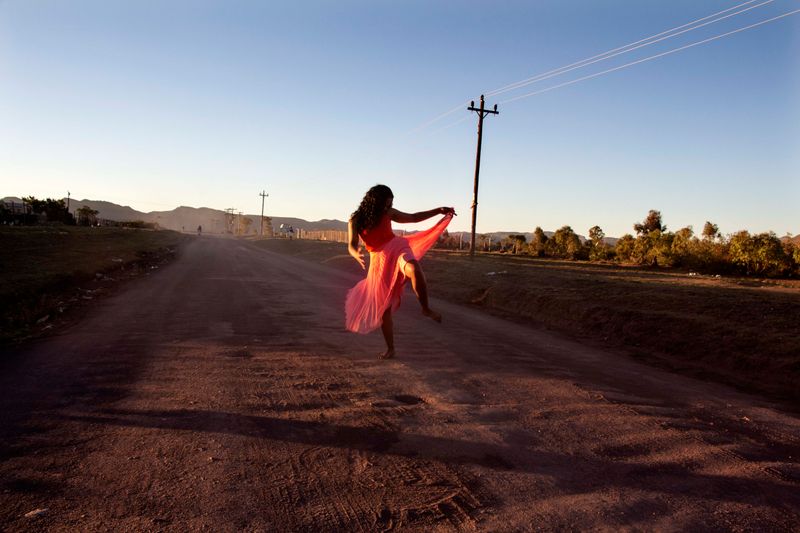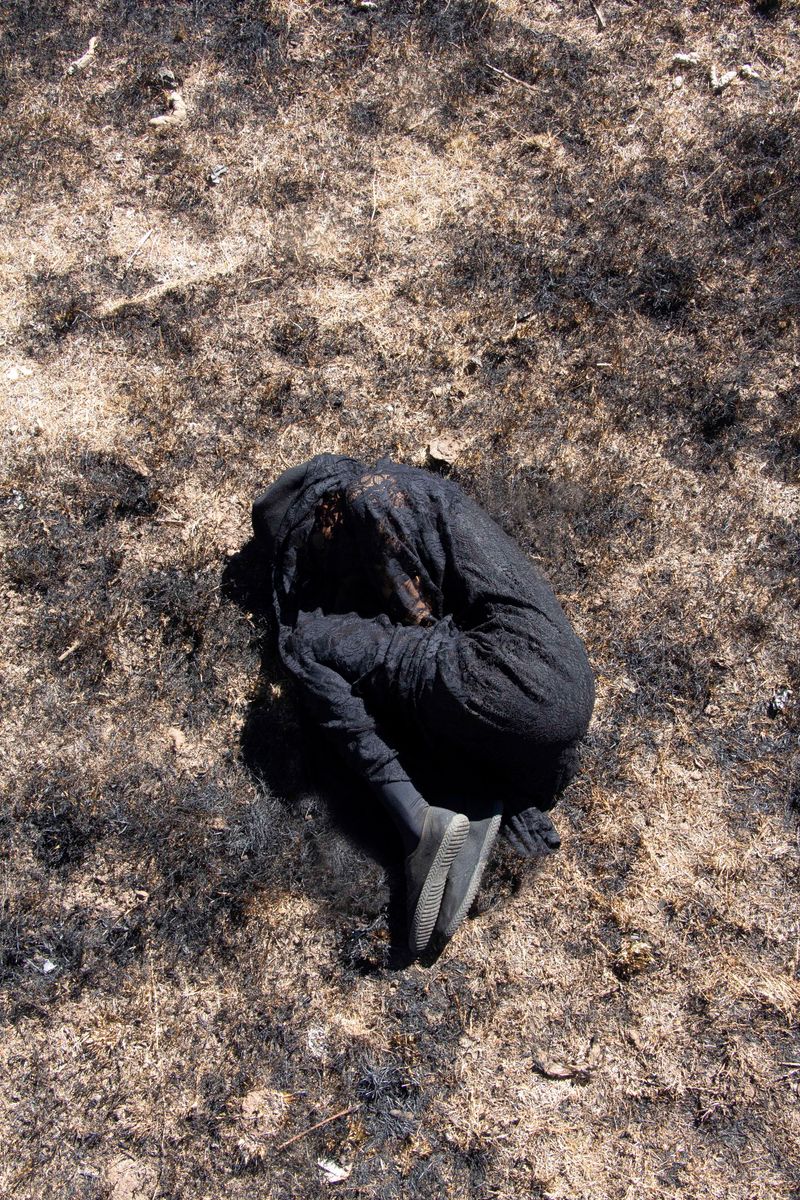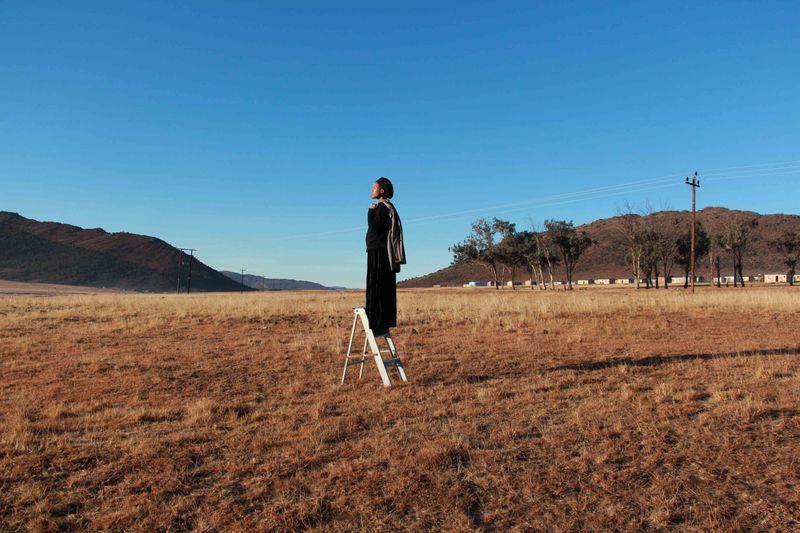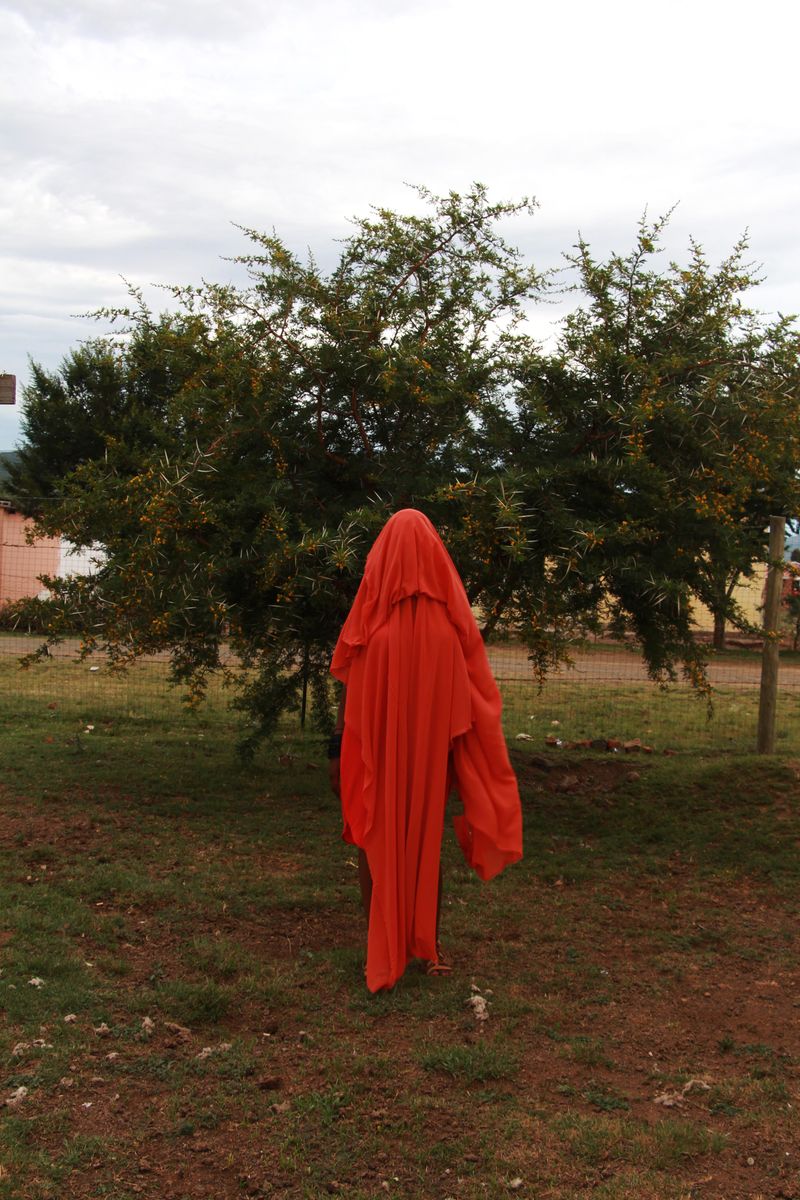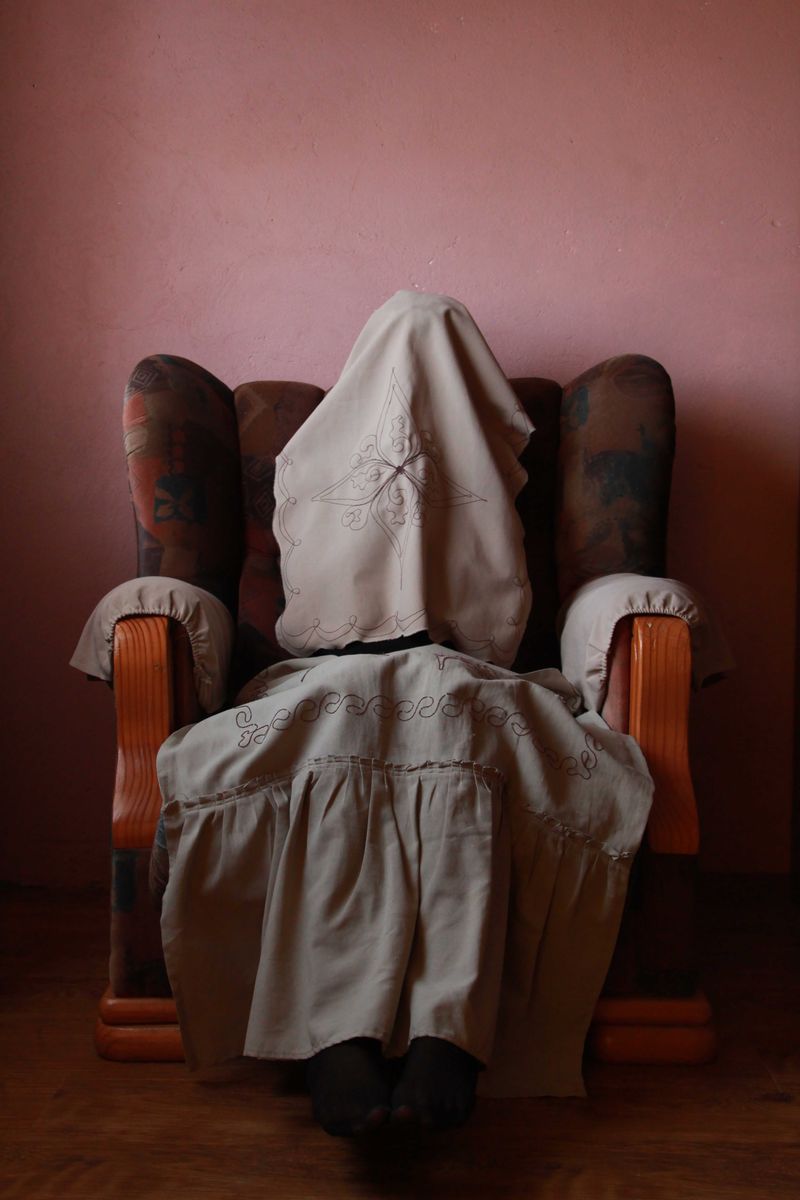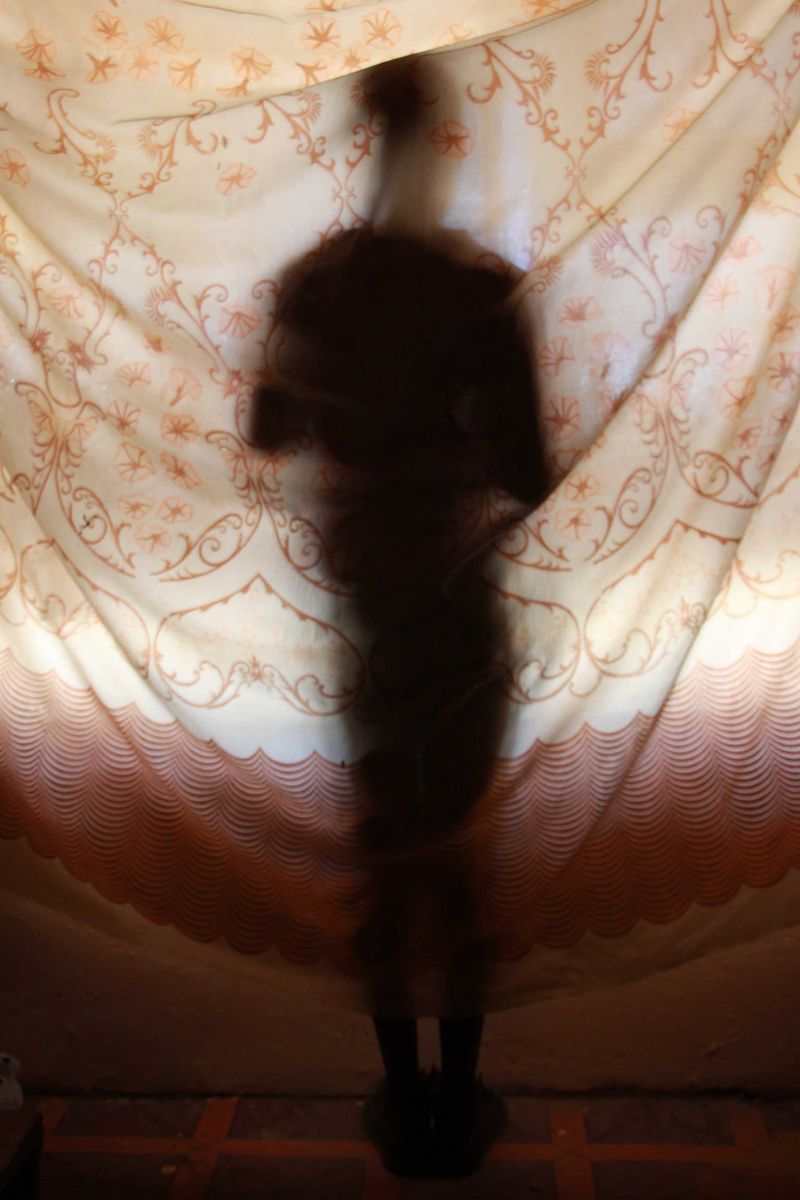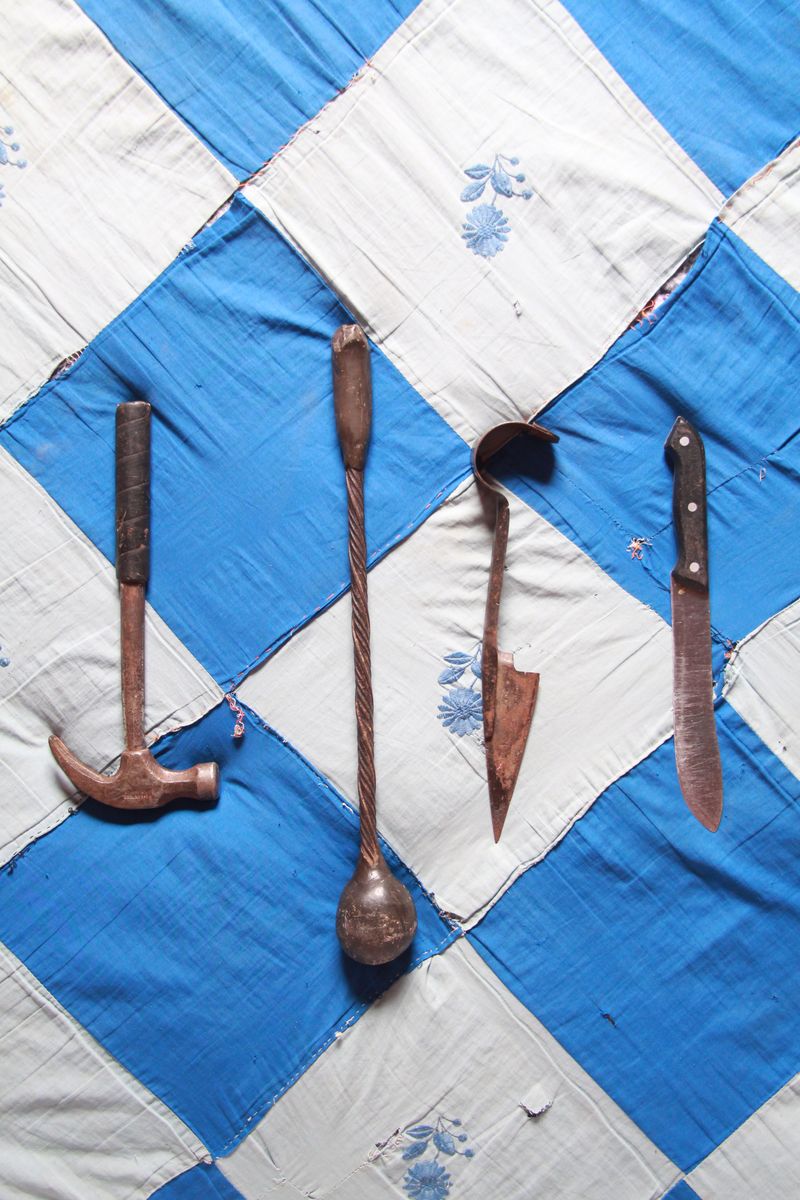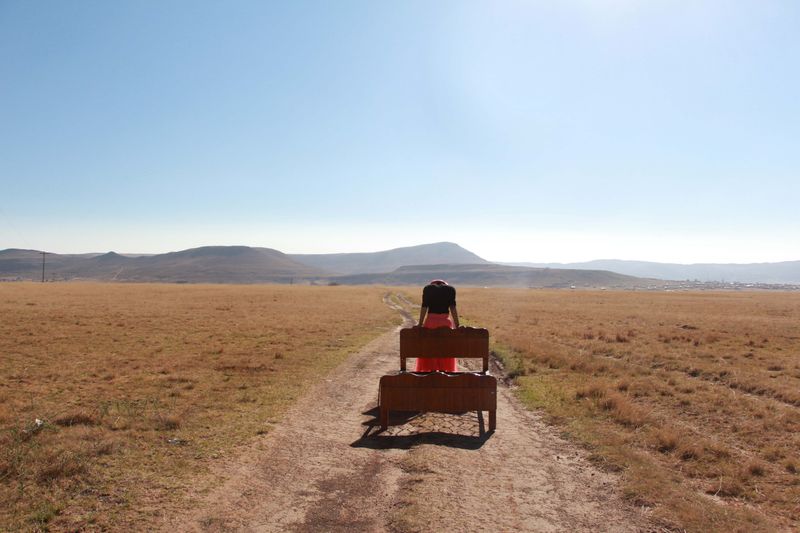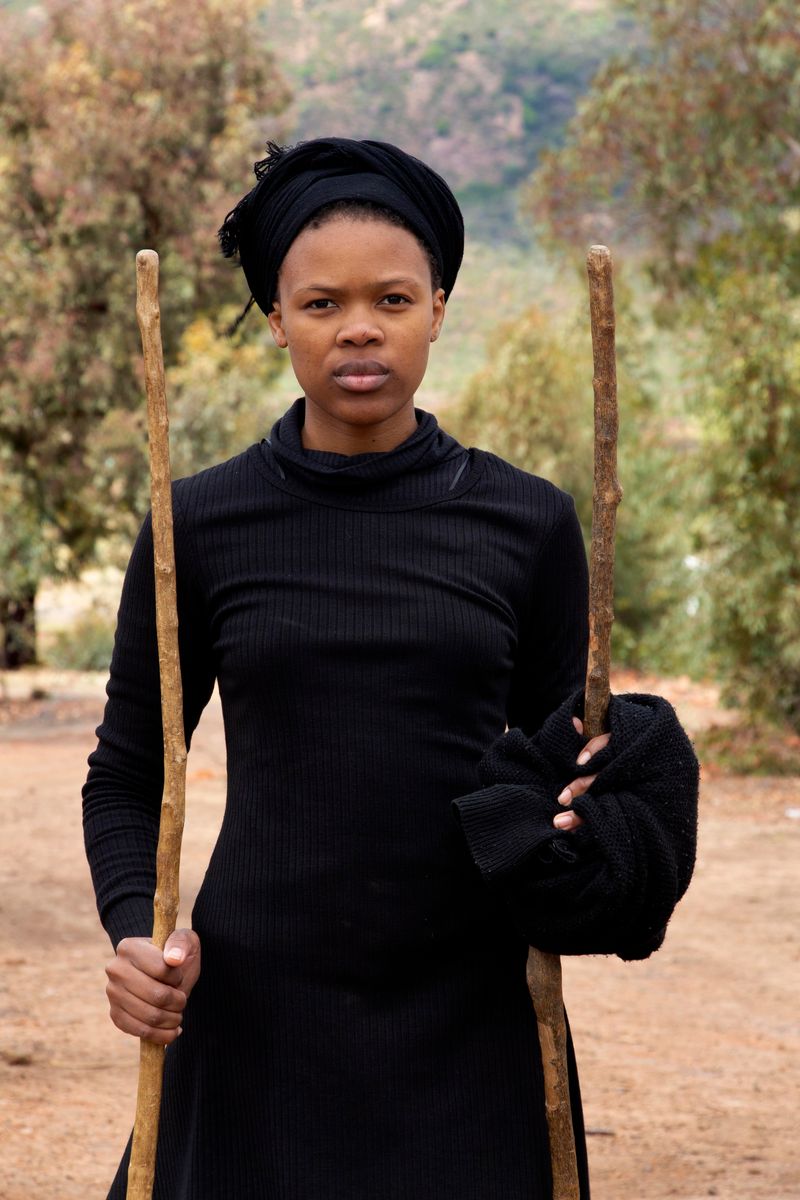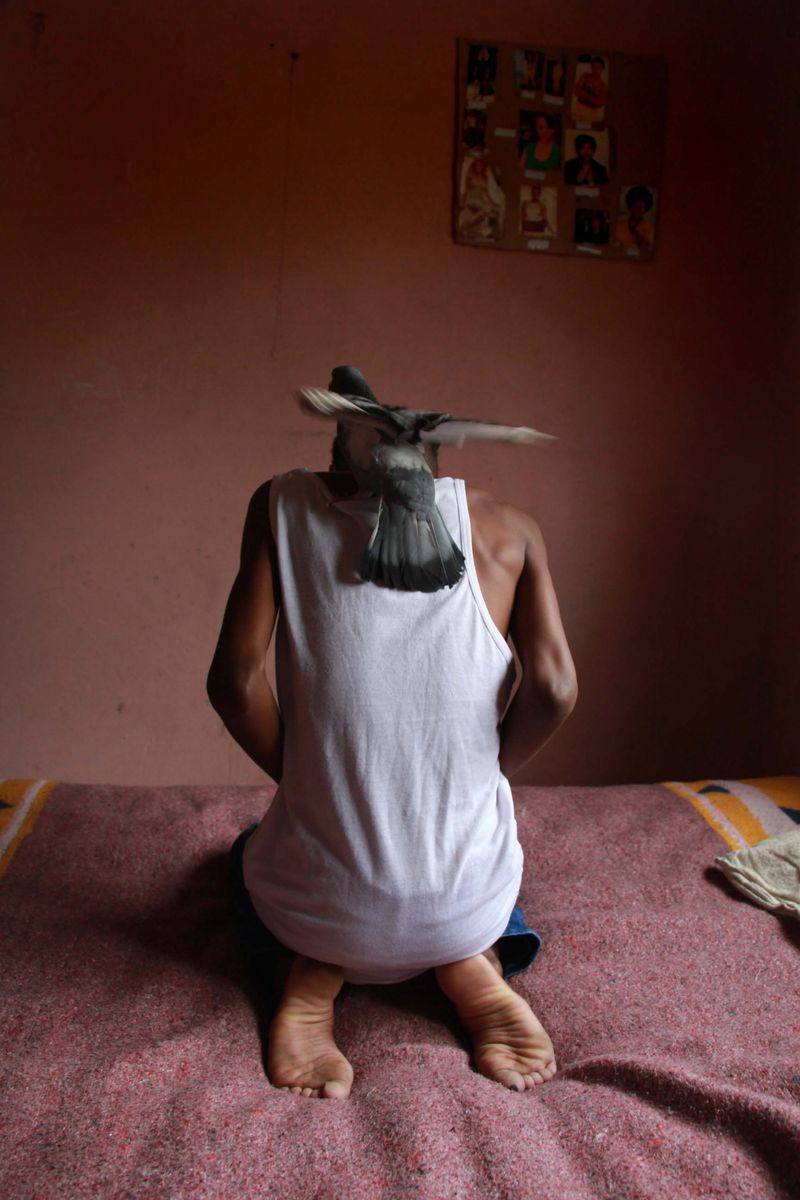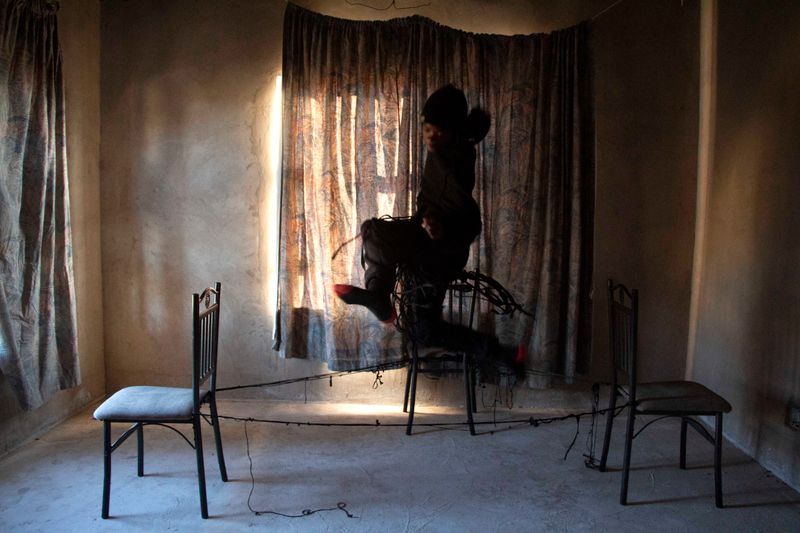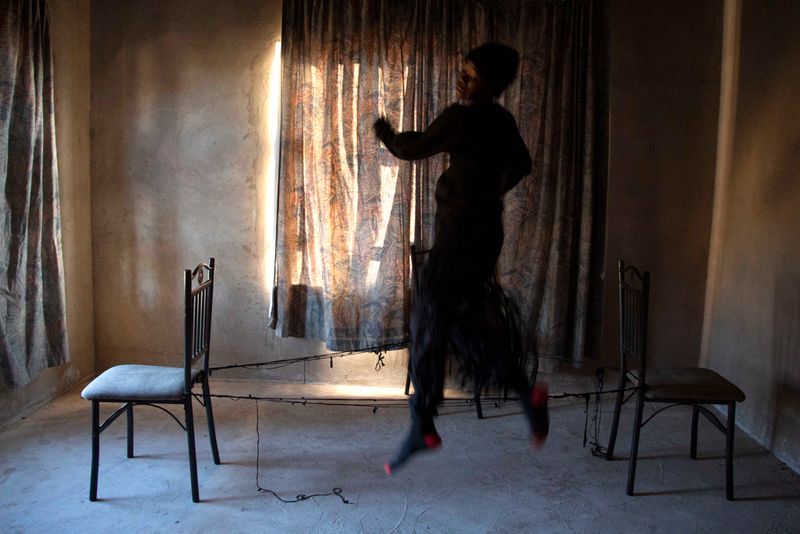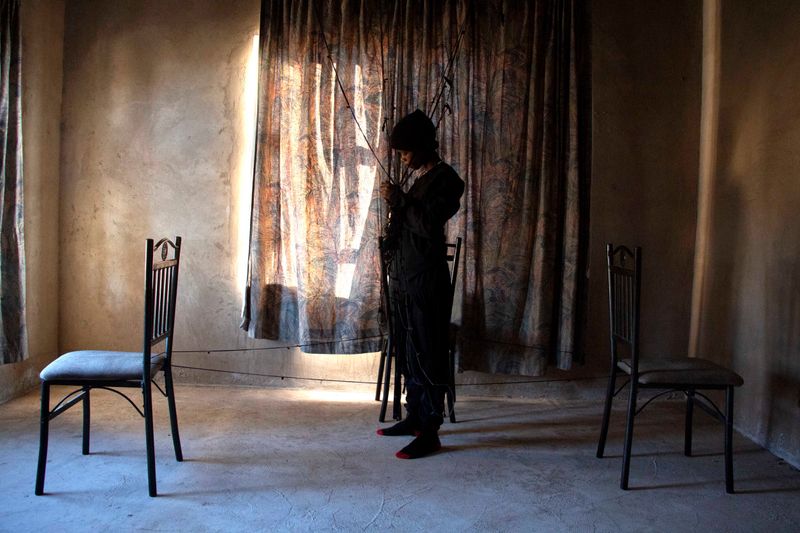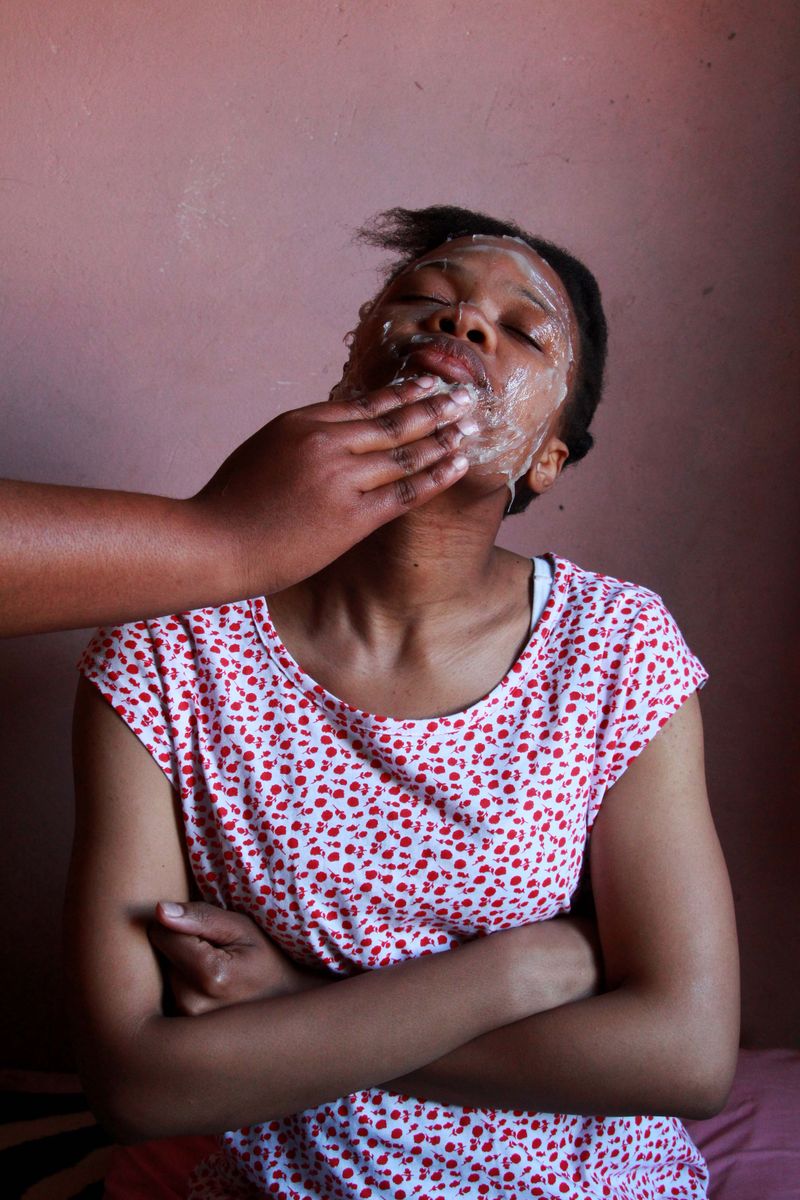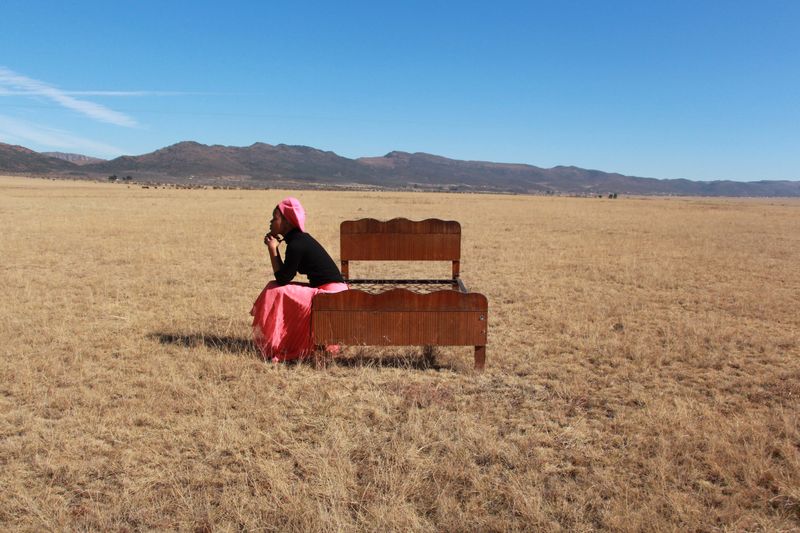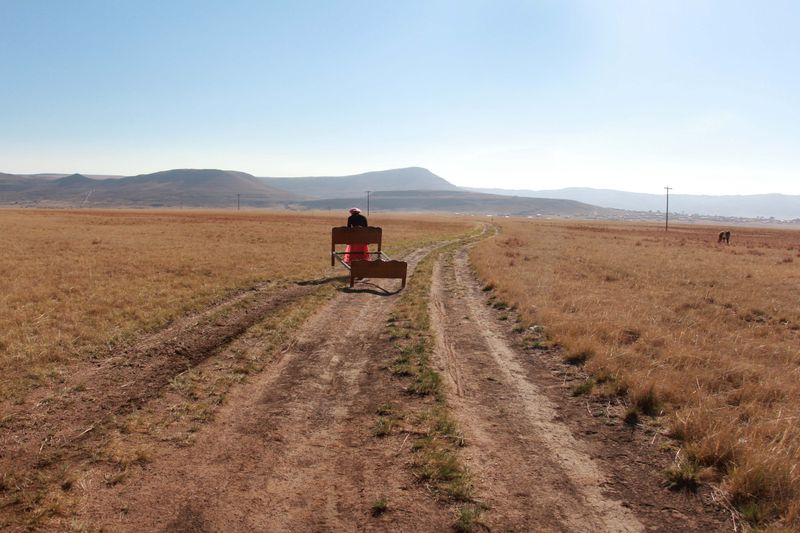Utata Undiphotha Inwele
-
Dates2016 - Ongoing
-
Author
- Locations Eastern Cape, South Africa
At the heart of this body of work is Msebenzi’s visceral childhood memory of her father plaiting her hair. This tender memory stands out because, as Thandiwe explains, she was “constantly exposed to violence” while growing up in New Crossroads, Nyanga and as a result “associated violence with masculinity.” This led her to start questioning the dominant constructions of gender that surrounded her. How was it that the world told her that all men growing up in neighbourhoods like hers were violent aggressors and that all women were helpless victims when her lived experience said otherwise?
In an earlier body of work, Awundiboni (You Don’t See Me), Msebenzi used her own personal experiences to shine a spotlight on how patriarchy affects women. In this collection, Msebenzi turns the lens on men: “I saw some young men that grew up violent, but at the same time I was blown away by other men around me who grew up in the very same violent environment, but never became violent themselves.” While the world told her one thing, her own life experiences told her another. This tension gave rise to the exploration of different ways of being a man.
The majority of her photographs are self-portraits. “I’m using my own body to talk about others’ stories” she says. One such story is about Msebenzi’s own grandmother and explores the myth that women in violent spaces are simply helpless victims. In the image Msebenzi is portrayed looking directly into the camera challenging the viewer while holding a stick in each hand – a reference to the traditional Xhosa male sport of stick fighting. This image is a homage to her grandmother who once challenged a man to a stick fight after he laid claim to her cow when it wandered onto his land. As the story goes, Msebenzi’s grandmother defied expectations by winning the fight and returning home with her cow. “The women that raised me always had weapons with them whether it was under their beds for protection at night, or in their handbags, they were always armed.” This aspect of Msebenzi’s work shows the interconnected nature of constructions of gender. Her grandmother was inhabiting a traditional performance of masculinity by challenging another man to a fight. In a similar way, Msebenzi’s father was displaying what is typically considered feminine behaviour by plaiting her hair. Msebenzi believes that art allows for more intuitive expressions and fluidity that help break out of these simplistic binaries of what it means to be a man or a woman.
In an age of #MeToo, when society has been forced to reckon with the violence perpetuated by narrow and toxic constructions of masculinity, Msebenzi ’s work is a vital intervention. Using the dynamic, physical and intuitive medium of art, including photographs, performance and installations, Msebenzi draws on the personal to challenge sweeping generalisations about gender. “Violence is not innate, otherwise everyone that I grew up with would be violent.”
